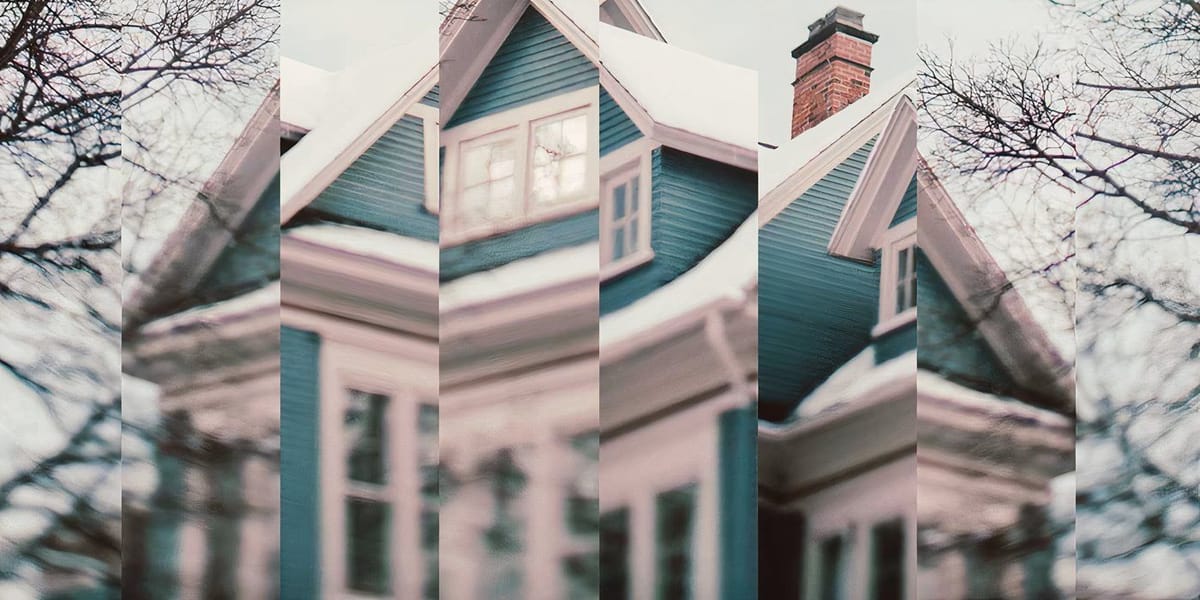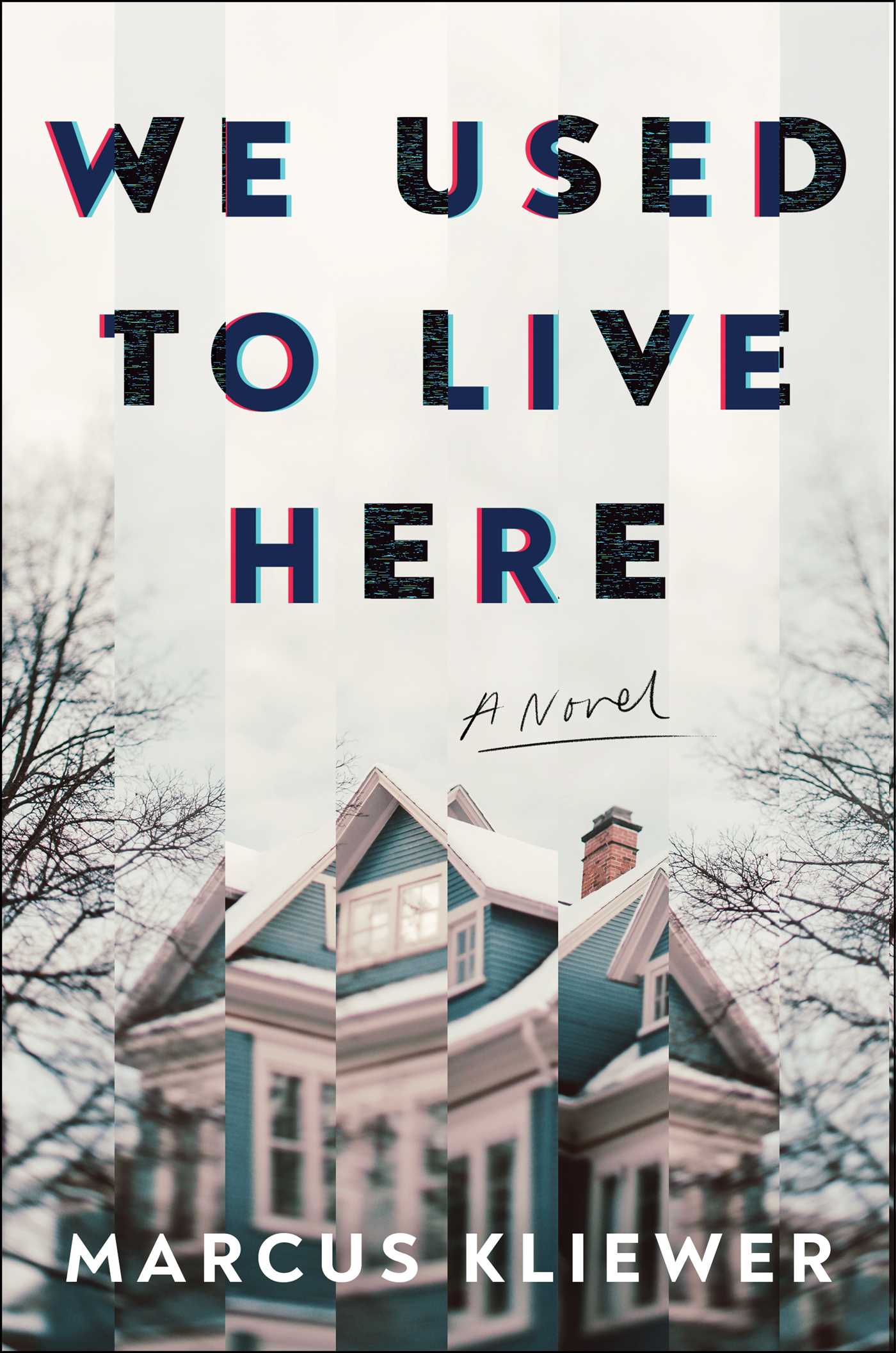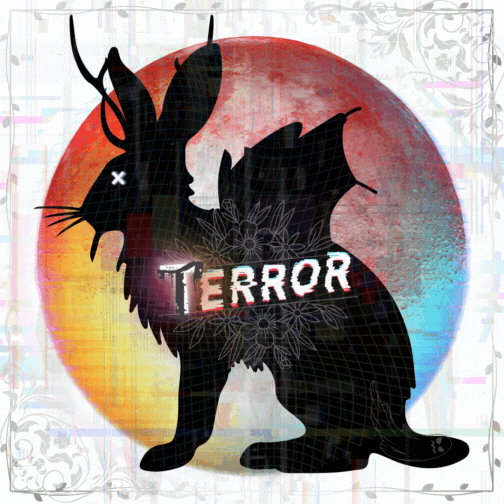Stranger Danger - We Used To Live Here Book Review
The story is good. The characters are neat. But it lacks the kind of writerly tricks that really make me gush over a book.

Title: We Used to Live Here
Author: Marcus Kliewer
Rating: 3/5

Eve and Charlie are a couple of house flippers who end up stretching themselves a bit too thin with their latest acquisition; a lovely house in the woods that needs a lot more work than expected. One night, a family shows up. The patriarch, Thomas Faust, explains he grew up in the house. And if it's alright, he'd like to show his family around. Just fifteen minutes and then they'll leave.
Eve, an eternal people pleasure with high anxiety, tries to make excuses to get them to leave, but ultimately gives in and lets them in. At some point, the youngest of the children, Jenny, goes missing. Thomas insists she's hiding in the basement and all they can do is wait her out. And then they wait and wait and wait until the storm comes and reality breaks.
I hadn't realized this was another book that started on r/nosleep. Which is, truly, awesome. I love how stories are getting lifted out of dark corners and presented to the world. I remember when John Dies at the End happened and how exciting and novel it felt. This is the third Nosleep book I've read (Stolen Tongues by Felix Blackwell and Penpal by Dathan Auerbach). All three of them have some truly unsettling and creepy moments that I loved. But all three of them also have the same failings for me.
There are some beautiful set pieces and absolute bangers of story setups. And then... we're just led away, on to the next scene. I'm not really the kind of person who needs answers to everything, but I do want...something. I'm not sure what. Maybe we'll figure it out by the end of this review.
One of my favorite books of all time is The Haunting of Hill House by Shirley Jackson. The setting is vibrant and enchanting. The characters all feel like real people who are aware they're in a short term situation and socializing in strange ways, like kids at overnight camp. My favorite part of the book is how well Jackson writes that razor's edge of haunted and psychosis. It always felt to me like it could go either way with Eleanor.
No Human eye can isolate the unhappy coincidence of line and place which suggests evil in the face of a house, and yet somehow a maniac juxtaposition, a badly turned angle, some chance meeting of roof and sky, turned Hill House into a place of despair, more frightening because the face of Hill House seemed awake, with a watchfulness from the blank windows and a touch of glee in the eyebrow of a cornice.
― Shirley Jackson, The Haunting of Hill House
We have a clear antagonist. It's the house. The house is always there, always watching. There's barely a moment in the book when we aren't aware of it. Even before Eleanor gets there, it's like she's waiting for it.
Maybe it's not fair to compare We Used to Live Here to The Haunting of Hill House. It's certainly a high bar. But I think the antagonist is a large part of my issue with Kliewer's work. I don't know who it is– the house or Thomas?
Here there be spoilers.
The house seems to be where the problems physically exist, but they don't start until Thomas shows up. Is he like a key in a lock? Or is he the true problem? There came a point in the book, after we learn the house seems to be a broken piece of reality where timelines shift and cross, that I thought perhaps Thomas was some sort of interdimensional being, wandering through realms and collecting a family. I thought maybe each person in his family was plucked from different worlds and that's why they seemed so different. But I'm not sure the book actually backs that up. It doesn't seem very interested in explaining Thomas at all. Other than a likely desire to come across as a likable dad, he doesn't seem to have much motivation or reason for his actions.
And, like... that's fine. But I wanted to know more. Thomas and the house are fascinating. I feel like Kliewer is almost on to something really cool, but he stops just short of it.
I think I found it. The problem. There are so many little things that feel like they should be important or tie into the narrative more. Both Charlie, Eve's girlfriend, and Shyloh, Eve's dog have heterochromia. It feels like that's something that could be used to great effect in a book like this, but it's just a mentioned fact that doesn't come back.
Same with Eve's anxiety. I feel like some tighter editing and word choices could have tied her fear of everything into the absolute unreality she's sliding into.
Even when the event was completely out of her control, even when the other party was blatantly overstepping her bounds, she always found a way to blame herself. Always felt this nagging sense of guilt for everything, as if her very existence was a violation of some stone-etched decree.
― Marcus Kliewer, We Used to Live Here
But she doesn't. Eve never blames herself for what's happening to her. She never thinks that her actions lead to this, despite the fact that she did let Thomas into the house. She let him stay. She let Charlie ignore her about the thing in the basement. Now, to be clear, I don't think anything that happened is truly her fault. But neither does she despite the narrative telling us that's exactly the kind of person she is.
There's also this one little thing that bothers me a lot. The title. We Used to Live Here. It's not true. Thomas used to live there. His family didn't. Maybe it's meant to refer to Eve and Charlie– that they used to live there before whatever happened happened. I know this is maybe a dumb thing, but I love titles to a possibly unhealthy degree. They're the first taste of the story. When I get to the end of the story and look back at the title, I want to feel things click into place. I just didn't feel that here.
There's another book that is maybe a more fair comparison; The House on Abigail Lane by Kealan Patrick Burke. I would say there's probably just as many questions left unanswered, but the fact that Abigail Lane is written, more or less, like true crime accounting of events makes it feel...less bad. Like there's some soft-voiced man sitting across from me, reminding me that it's just the facts.
We stepped over the threshold of an ordinary house in an ordinary neighborhood and over the threshold of modern knowledge. It is not a place steeped in old evil. It's a calamity of physics. There's a fissure, a gaping cosmic wound, a door to places we can't begin to fathom.
― Kealan Patrick Burke, The House on Abigail Lane
Burke goes just as far into the surreal as Kliewer, but he uses the framing of the narrative to let the reader know this is all they'll get. There are no more answers. We tried to find them and we couldn't.
Perhaps that's where Kliewer wanted to lead us. I think we almost made it, but somewhere along the way, I got lost in a hallway covered in cold hospital tiles. He lost me. I hope he can get me back.
The story is good. The characters are neat. But it lacks the kind of writerly tricks that really make me gush over a book.
If you liked this review and want to give the book a try, here's my affiliate link to get it from Bookshop.org!
